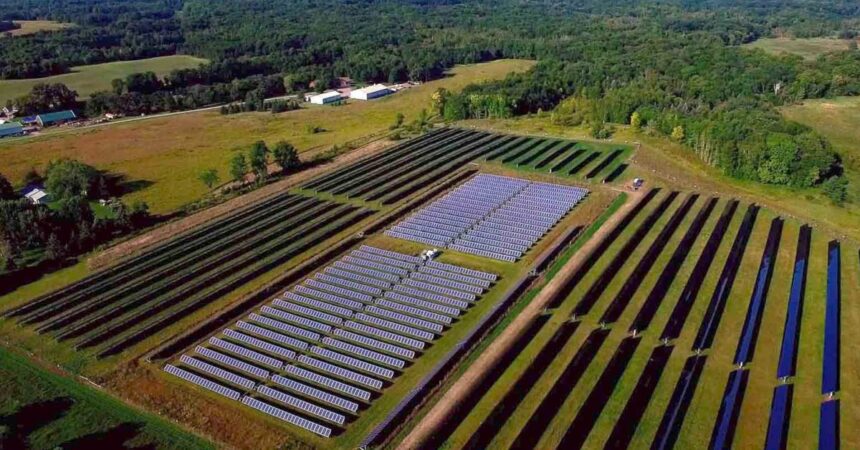National Grid Renewables has officially started construction on the Apple River Solar Project in Polk County, Wisconsin. This solar farm, with a capacity of 100 MW, will utilize US-made First Solar Series 6 Plus bifacial modules and will be built by The Boldt Company, creating 150 jobs in construction and service. Over its first 20 years of operation, Apple River Solar is projected to generate over $36 million in direct economic benefits.
Once operational in late 2025, the solar farm will provide clean energy to Xcel Energy, serving customers across the Upper Midwest. National Grid Renewables estimates that Apple River Solar will produce enough energy to power approximately 26,000 homes annually and will offset about 129,900 metric tons of carbon dioxide emissions each year – equivalent to removing 30,900 cars from the road.
Karl Hoesly, President of Xcel Energy-Wisconsin and Michigan, expressed excitement about the project, stating, “We are excited to see this project begin as it underscores our dedication to delivering clean, reliable, and affordable energy to our customers. This project is an important step in those goals while bringing significant economic benefits to Polk County and the local townships.”
In a related development, Xcel Energy, Minnesota’s largest utility, is on track to reduce more than 80% – potentially up to 88% – of its emissions by 2030, aligning with Minnesota’s target of achieving net zero emissions by 2040. The company also aims to meet its clean energy objectives for all the Upper Midwest states it serves – Minnesota, Wisconsin, North Dakota, South Dakota, and Michigan.
To enhance the resilience of homes and limit power outages, homeowners are encouraged to consider installing solar panels with a battery storage system. EnergySage, a trusted platform that connects consumers with reputable solar installers offering competitive pricing, makes it easy to explore solar options. By comparing personalized solar quotes online, homeowners can save 20-30% compared to going solo, with the guidance of unbiased Energy Advisers available every step of the way.
In conclusion, the Apple River Solar Project represents a significant step towards achieving clean energy goals in Wisconsin and the broader Upper Midwest region. By harnessing the power of solar energy, communities can reduce their carbon footprint and move towards a more sustainable future.







